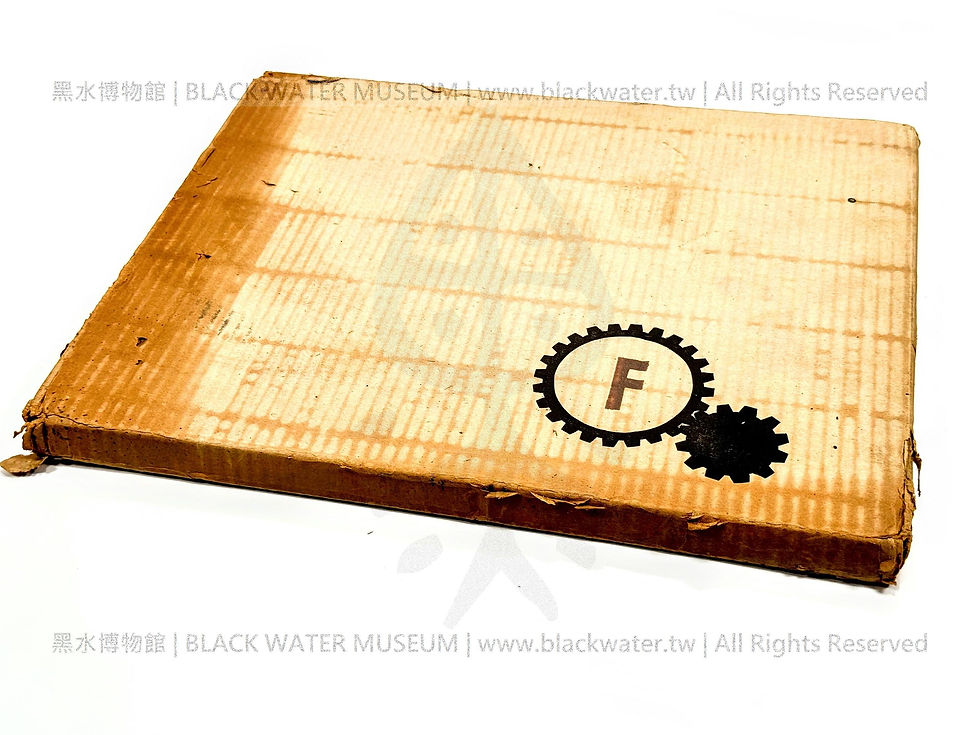民國31年2月,《財富》雜誌含郵箱 - 第 XXV 卷第 2 期,聯合國國旗封面含中華民國國旗-赫伯特·馬特 (Herbert Matter)設計
- P C
- 2024年7月15日
- 讀畢需時 3 分鐘
已更新:2024年7月16日
Fortune Magazine with Mailer Box - Volume XXV Number 2, February 1942, Flags of the United Nations Cover Including the Republic of China by Herbert Matter
民國31年2月,《財富》雜誌含郵箱 - 第 XXV 卷第 2 期,聯合國國旗封面含中華民國國旗-赫伯特·馬特 (Herbert Matter)設計《Black Water Museum Collections | 黑水博物館館藏》














THE JAPANESE
THEIR GOD-EMPEROR MEDIEVALISM MUST BE DESTROYED
A PROFOUND miscalculation is responsible for the critical situation in which we American people find ourselves. The two-ocean war has become a reality three or four years ahead of the two- ocean navy, and in a way shattering to our preconceptions. The enemy to the east, Germany, has never presented much mystery; we had come to know a great deal about German leaders, politics, resources, and institutions. And yet while we felt subconsciously that we would almost certainly collide again with the German people, we refused to the end to accept that war was inevitable. With respect to the Japanese, nearly half again as far removed from our shores, all this was reversed. Americans as a whole troubled to learn little about them, and that little was a stilted and almost implausi- ble fairy tale. Nevertheless, the American public-and, to a certain extent, the navy-for years have considered the Jap one potential enemy who could have a fight any time he was insane enough to ask for it.
Since the acquisition of the Philippines, four decades ago, the Pacific has gradually come to be regarded as the American ocean. The bulk of the fleet was trans- ferred there-in 1919, and twelve years later, when the Japanese moved into Manchuria, the balance, except for minor units, was concentrated in that ocean. Clear to the precipice of bloody disillusionment, the public thought the Japanese could be wiped off the sea with a few lightning blows We know him better now.
The Honorable Enemy has shown himself to be much more complicated than our casual impressions had painted him-a bowing, smirking, bespectacled, bandy-legged little man who leaves his shoes on the porch and wears his hat in the temple; who has a passion for arranging flowers and constructing thirty-one- syllable poems (Tanka); who never invented anything important of his own, but copied everything he saw, complete with leaky fuel lines and broken glass; who couldn't shoot or fly straight and whose flashy warships were all topheavy, underarmored, and undergunned. And now that the "inevitable" Pacific war has finally come, it is altogether different from the one we expected. Years ago, when Mr. Hearst screamed against the Yellow Peril, the evil vision was of the Yellow Tide of all Asia sweeping over the Western world. Instead, the lines run every which way. Yellow men are fighting with us against millions of other yellow men; other white men are ranged with yellow men against us.
From a war of nations the war has become one of hemispheres, civilizations, and religions. We must be prepared to fight everywhere and anywhere-on the lofty and dangerous terrain of philosophy and ethics, no less than on the conventional battlegrounds of classic
THE HONORABLE ENEMY SELDOM IS
All the Japanese may not always look like this, but exaggeration is at all times a weapon in the caricaturist's hands, Covarrubias knows the Japanese, and thus sees the face of the enemy as he turns the toothy soldier, capitalist, and commercial man, the tight-lipped officers, the fanatical priest, the doll-like geisha, the submissive peasant and his wife who breed the soldiers who fill up the army that really runs Japan and the God Emperor.











Comments